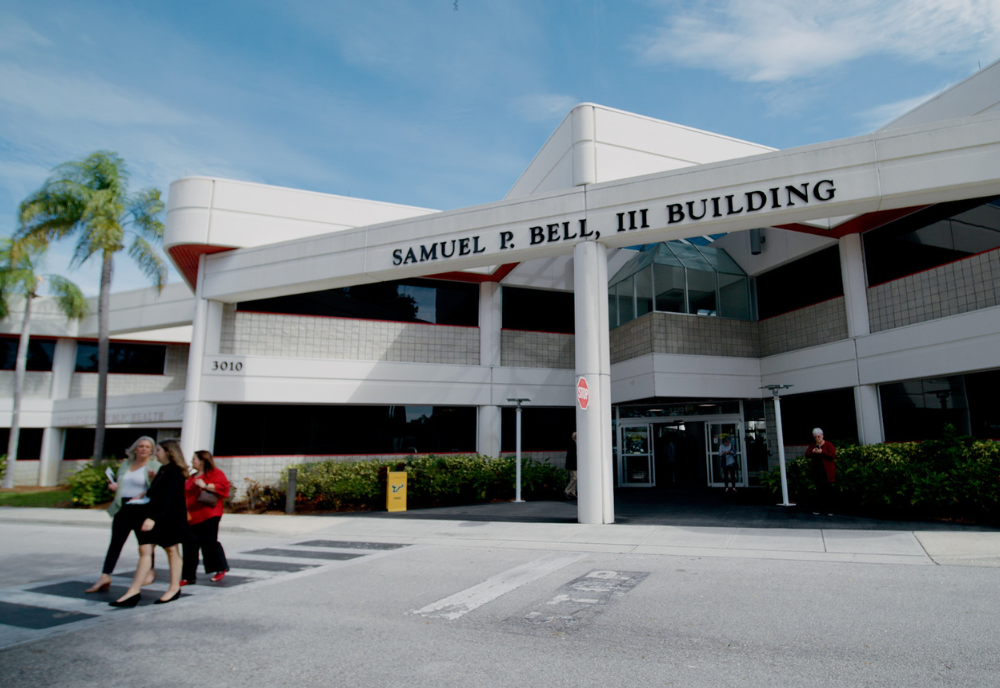The past year brought transformative changes to the USF College of Public Health (COPH), marked by impactful advancements in leadership, community engagement and technology. These developments highlighted COPH's dedication to improving public health outcomes both locally and globally.
Key initiatives included leadership transitions that energized long-standing programs, technological advancements that elevated research capabilities and new collaborations that strengthened ties with community partners.
Strengthening the genomics core facility
The USF Genomics Program core facility made considerable progress last year, bolstered by a state-of-the-art infrastructure grant led by Drs. Rays Jiang and Min Zhang. Under the direction of Dr. John Adams, the facility installed cutting-edge technologies, including the Visium HD CytAssist system. This equipment significantly enhanced the core’s capacity to support research in cancer, infectious diseases and neurobiology.
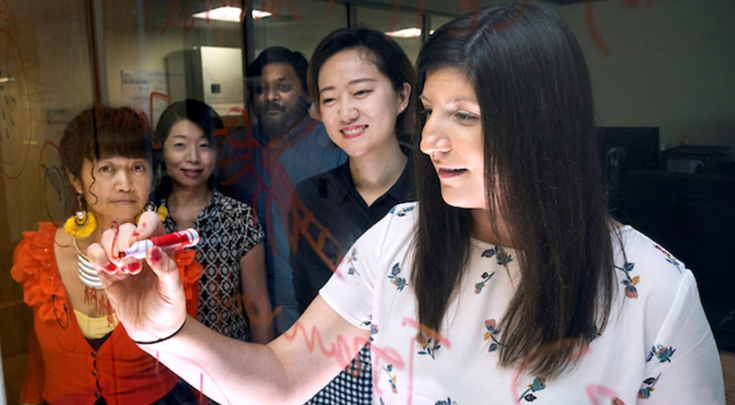
Dr. Rays Jiang and colleagues from the USF Genomics Program. (Photo courtesy of USF Health)
The leadership of Dr. Chengqi “Charley” Wang, who was appointed director of the genomics core, brought expertise in multi-omics analysis to the team. Wang collaborated with Drs. Bi Zhao, director of the genomics computational core, and Justin Gibbons, a research associate and specialist in data analysis, to expand the facility’s research capabilities and foster impactful discoveries.
Evolving leadership for the Chiles Center
The Chiles Center experienced a pivotal leadership transition following the retirement of Dr. Bill Sappenfield. The center continued its mission to advance the health of women, infants, children and families through innovative research and collaborative partnerships and held a retreat to reflect on the center’s past, present and future. The event fostered collaboration and sparked conversations about sustaining and enhancing the center’s mission.
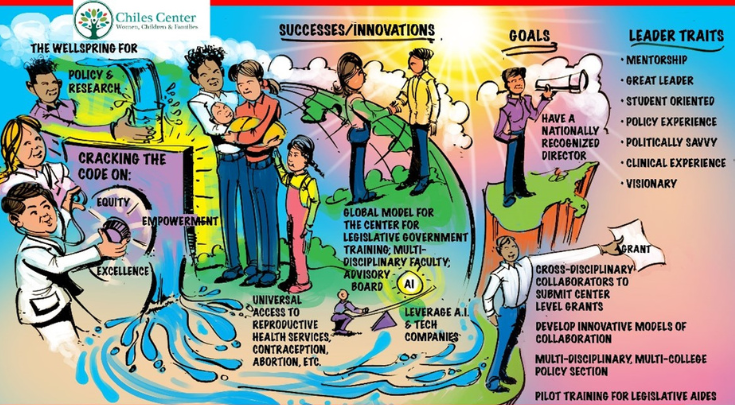
Ideas that COPH faculty, staff and students populated brainstormed at the Chiles Center retreat. (Photo courtesy of Donna Petersen)
To bring the retreat’s ideas to life, Dr. Ellen Daley, senior associate dean for research and practice, stepped into the role of director, maintaining her leadership in research while transitioning her doctoral training responsibilities to Dr. Amy Alman, director of PhD programs. Additionally, Dr. Steve Freedman joined the Chiles Center as associate director for policy development, helping scale the center’s policy impact and outreach.
Expanding community engagement through the COPH Community Hub
Last year, COPH launched the Community Hub to strengthen connections with community stakeholders and address pressing public health issues. The Hub, guided by an advisory board of internal and external collaborators and led by its director Dr. Roneé E. Wilson, serves as a bridge between academic research and real-world applications, fostering innovative community-engaged projects.
Designed to align with the mission of the USF Office of Community Engagement and Partnerships, the Hub supported communities by focusing on areas where they live, work and age.
A year full of new faces
Since January 2024, the COPH has welcomed a wave of new faculty members, each bringing expertise that enhances the mission to advance public health and improve lives both locally and globally. Their contributions are already fueling new initiatives and inspiring students, reinforcing the college's standing as a leader in public health education and impact.
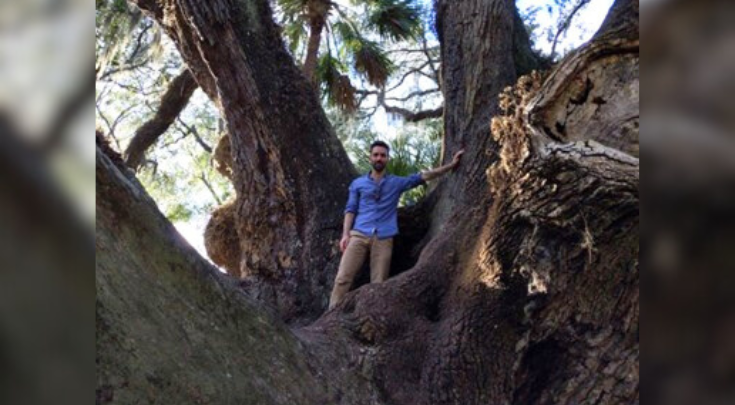
Justin Gibbons, PhD (Photo courtesy of Gibbons)
Dr. Justin Gibbons joined the COPH in January as a research associate in the USF Genomics Program.
Gibbons earned his PhD from the USF Morsani College of Medicine studying drug resistance in the malaria parasite Plasmodium falciparum using genomic approaches. He then continued on as a postdoctoral scholar at the COPH providing computational assistance on a diverse array of projects, such as studying how the microbiome affects health outcomes in preterm infants and using forward genetic screens to study mechanisms of drug action and drug resistance in Plasmodium falciparum.
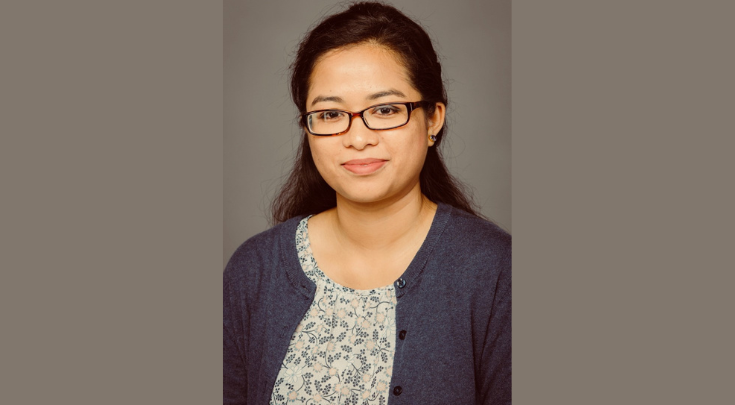
Barsha Manandhar, PhD (Photo courtesy of Manandhar)
Dr. Barsha Manandhar joined the COPH in March as an assistant professor of global disaster management, humanitarian assistance and homeland security.
Manandhar holds a PhD in public affairs from Florida International University (FIU). Her teaching and research interests lie in the intersection between disaster governance and the resilience of critical infrastructures.
Prior to joining the COPH, she worked as an adjunct instructor in the Department of Public Policy and Administration at FIU. Additionally, she worked as a research associate in the FIU Institute of Environment. In this capacity, Manandhar managed and implemented two externally funded research projects related to understanding the challenges of managing public health system resilience and transportation infrastructure following hurricanes.
Manandhar has also worked as an environmental consultant in Nepal. She conducted environment impact assessments of infrastructure projects. Additionally, she worked as a program officer for a non-governmental organization, Group of Helping Hands. There, she supervised institutional development and food security projects to reduce the risks and impacts of climate disasters in rural Nepal.
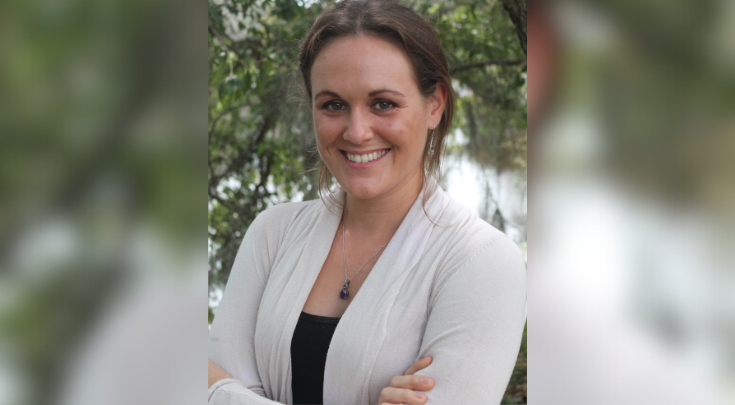
Caitlin Wolfe, PhD, MPH (Photo by Caitlin Keough)
A double alumna of the COPH, Dr. Caitlin Wolfe continued practicing her passion at the COPH in June as an instructor I for the foundational core with the MPH program.
Wolfe is an applied infectious disease epidemiologist focused on disease surveillance, outbreak preparedness and response, global health security and health systems strengthening, particularly in fragile, conflict-affected and vulnerable settings.
She recently completed her PhD within the COPH global communicable disease concentration. While completing her PhD, Wolfe worked with the World Health Organization and International Organization for Migration during multiple outbreaks responses and on several disease surveillance, public health intelligence, health systems strengthening and health and migration initiatives.
Wolfe said she enjoys bringing real-world examples to the classroom and bringing the complexities of public health problem-solving and importance of critical thinking to life for her students.
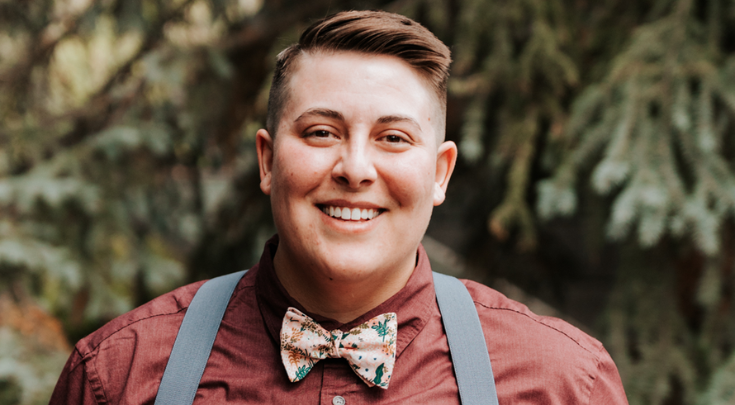
Allison Siedel, DrPH, MPH (Photo courtesy of Siedel)
Dr. Allison Siedel also joined the COPH in June as an instructor I for the foundational core with the MPH program.
Siedel has over a decade of experience as an epidemiologist, specializing in disease surveillance and outbreak response. Her extensive public health work includes analyzing data for influenza vaccine strain selection, investigating a norovirus outbreak among Air Force Academy cadets and leading the COVID-19 case investigation and contact tracing efforts in Denver.
Recently, she has collaborated with the CDC on electronic case reporting (eCR) and helped jurisdictions modernize their surveillance systems using eCR.
Siedel holds a BS in biology from Millersville University, an MPH in epidemiology from East Tennessee State University and a DrPH in epidemiology from the Colorado School of Public Health.
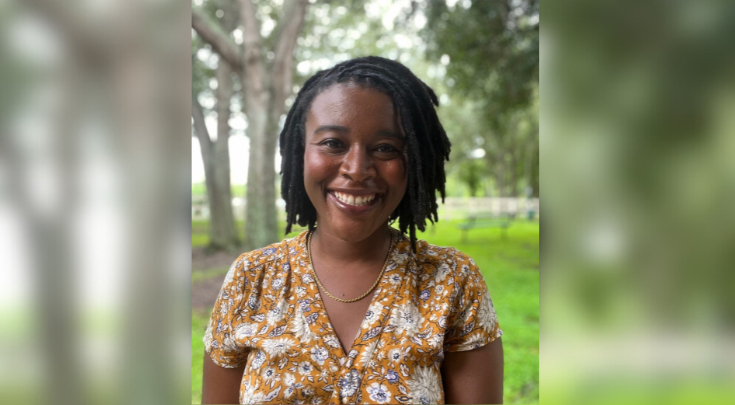
Jennifer Winston, MPH, CPH (Photo courtesy of Winston)
COPH alumna Jennifer Winston currently serves as an instructor I for the COPH’s undergraduate studies program.
With more than eight years of research and evaluation experience, Winston is skilled in quantitative and qualitative data methodologies, written and oral communication and project management.
She is actively involved in a variety of grants ranging from applying an asset-based approach to child development to delving into community-based behavioral health systems.
Her research interests include mental health and well-being, adolescent health and family resilience.
Winston earned her BA in sociology from Florida State University and her MPH in public health education from the COPH. She also holds a graduate certificate in translational research in adolescent behavioral health, which aims to bridge the gap between research and practice through implementation science.
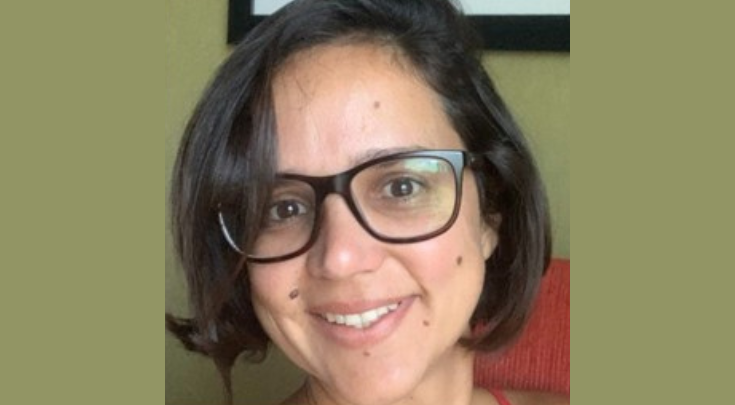
Camilla Valente Pires, PhD, MS (Photo courtesy of Valente Pires)
Continuing at the COPH after four years as a postdoctoral researcher, Dr. Camilla Valente Pires is currently a research associate fellow with Dr. John Adam’s.
Valente Pires earned her MS in genetics from Federal University of Viçosa in Brazil and then her PhD in genetics from the University of São Paulo, where her research focused on gene expression and regulation. She has also contributed to advancements in genetic research through various academic roles.
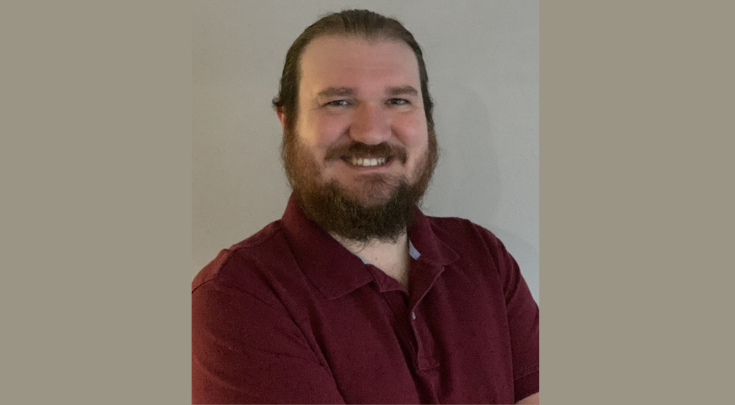
James Gegenheimer, MS, RDN, LDN, CSCS (Photo courtesy of Gegenheimer)
James Gegenheimer joined the college as an Instructor I for the BSHS program.
Gegenheimer earned his BS and MS degrees from Florida State University in Tallahassee and completed his dietetic internship there as well. Prior to becoming a full-time instructor, he worked in several acute care facilities, including long term acute care focusing on wound care and nutrition support.
Gegenheimer said he is a third-generation teacher with a love for the classroom, active learning and teaching the next generation of public health to solve future health care issues. His professional interests include sports nutrition, combat sports and researching traumatic brain injuries, as well as public health, including obesity weight management.
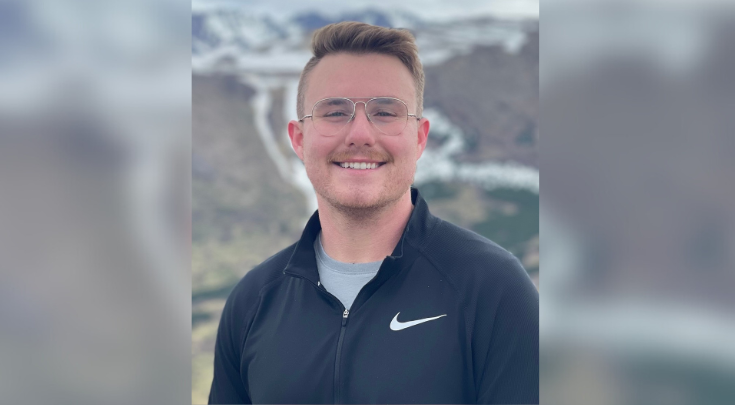
Travis Hudson, MPH (Photo courtesy of Hudson)
Starting in July, Travis Hudson is an instructor I for the COPH’s undergraduate studies program teaching public health and contemporary health sciences.
Hudson’s research background and interests are in COVID-19 response and emergency management.
Hudson is a recent graduate of the University of Tennessee Knoxville Campus (UTK) where he earned his MPH in epidemiology.
While there he was a part of the emergency management team where he led a team of researchers and staff in updating campus policy for pandemic procedures. He also analyzed qualitative and quantitative data from over 5000 completed surveys. The survey covered topics of emergency procedure and various crisis situations that students, faculty, staff and visitors could face on campus. He also educated various students, faculty and staff members on various emergency scenarios that could affect UTK.
